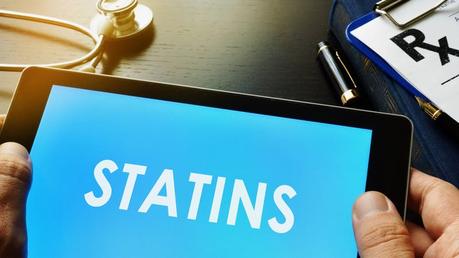
Statins increase the risk of developing diabetes. That we know, and that sounds scary for many. But just how serious is this risk? That is a harder question to answer.
The New York Times: Statins may increase risk of diabetesA recent report from the Rotterdam Study (an observational study, weak quality evidence) concluded that those taking statins had an increased relative risk of 38% for developing diabetes compared to those not on statins. The risk was most noticeable in those who were overweight and insulin resistant at baseline.
Other observational trials (weak quality evidence), such as one including over 2 million subjects from the UK, showed a 57% relative risk increase of type 2 diabetes that was time dependent, meaning the longer one was on a statin, the higher the risk. To be fair, just as with most observational studies, these studies do not prove cause and effect. However, they are not the only evidence of an association.
Randomized controlled trials (RCT) such as the Jupiter study (high level of evidence) demonstrated a 25% relative risk increase in diabetes, or 0.6% absolute risk increase over two years, for those randomized to the statin rosuvastatin. This trial is much more conclusive for cause and effect, but the absolute difference was quite small, which may be attributed to, at least in part, a very short time frame at only two years.
Since then, multiple published meta-analysis of RCTs (highest level of evidence) have confirmed the association of a small but significant risk, 9-12% relative risk increase, and others have suggested a higher risk in those who are obese, insulin resistant, pre-diabetic, or who have metabolic syndrome.
There is some debate about whether this is a class effect, meaning that all statins contribute to the risk, or if rosuvastatin has the highest risk and pitavastatin possibly the lowest risk (the trials have variable statistical significance and are considered weak evidence). It also appears higher doses of statins may be more likely to induce diabetes than lower doses, although this association was also inconsistent.
The main question is, does the increased risk of diabetes worsen overall outcomes? An analysis of the Jupiter trial suggested there was no difference in risk of heart attacks or death. However, keep in mind this trial only lasted two years. We would expect it to take longer for the adverse events from diabetes to materialize. Therein lies the problem. When most "long-term" statin trials are only 5 years, it's difficult to rest assured that the increased risk of diabetes will not increase cardiovascular disease risk over a longer time period.
As with any medical decision, we have to weigh the risk-benefit ratio for any prescription drug, and statins are no exception. While we may not always know the exact risk and benefit numbers, one study in Australian women suggested a "number needed to harm" of 131 treated for five years to induce one diagnosis of diabetes. That can be compared to the number need to treat of 217 people for 5-years to prevent one heart attack in low risk individuals, and 83 for those with pre-existing heart disease.
In the end, if the decision is to prescribe a statin, that is one more reason to remain vigilant, actively monitoring for and working to preventing insulin resistance and diabetes. In my practice, I routinely monitor patients' HbA1c and HOMA-IR (a formula using fasting insulin and glucose levels), and I have started recommending low-carb, high-fat nutrition as a means to preventing statin-induced diabetes.
While this is unorthodox for those treated with statins, I feel it gives the individual the best chance to improve most cardiovascular risk factors and also help prevent against the potential statin side effects. Make sure you ask your doctor to help you weigh the risks and benefits of statin prescription, and work with her to find ways protect you from potential adverse effects such as insulin resistance and diabetes.
Thanks for reading,
Bret Scher, MD FACC

